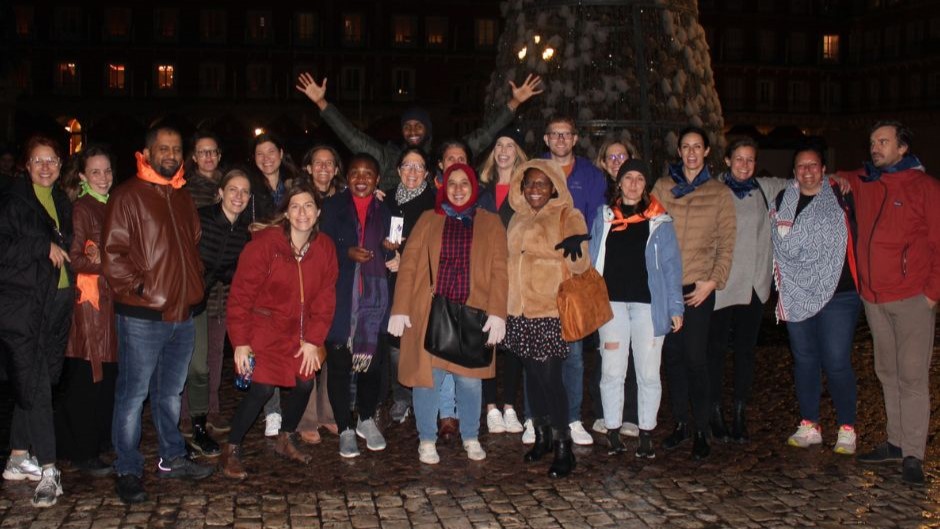Request support on coordination, information management, integration for nutrition outcomes or technical nutrition in emergencies assistance.
التماس الدعم لتنسيق التغذية وإدارة المعلومات والتغذية في حالات الطوارئ
Demander un appui pour la coordination de la nutrition, la gestion de l'information et la nutrition dans les situations d'urgence
Buscar apoyo para la coordinación de la nutrición, la gestión de la información y la nutrición en situaciones de emergencia
Solicite apoio para coordenação em nutrição, gestão de informação e nutrição em emergências
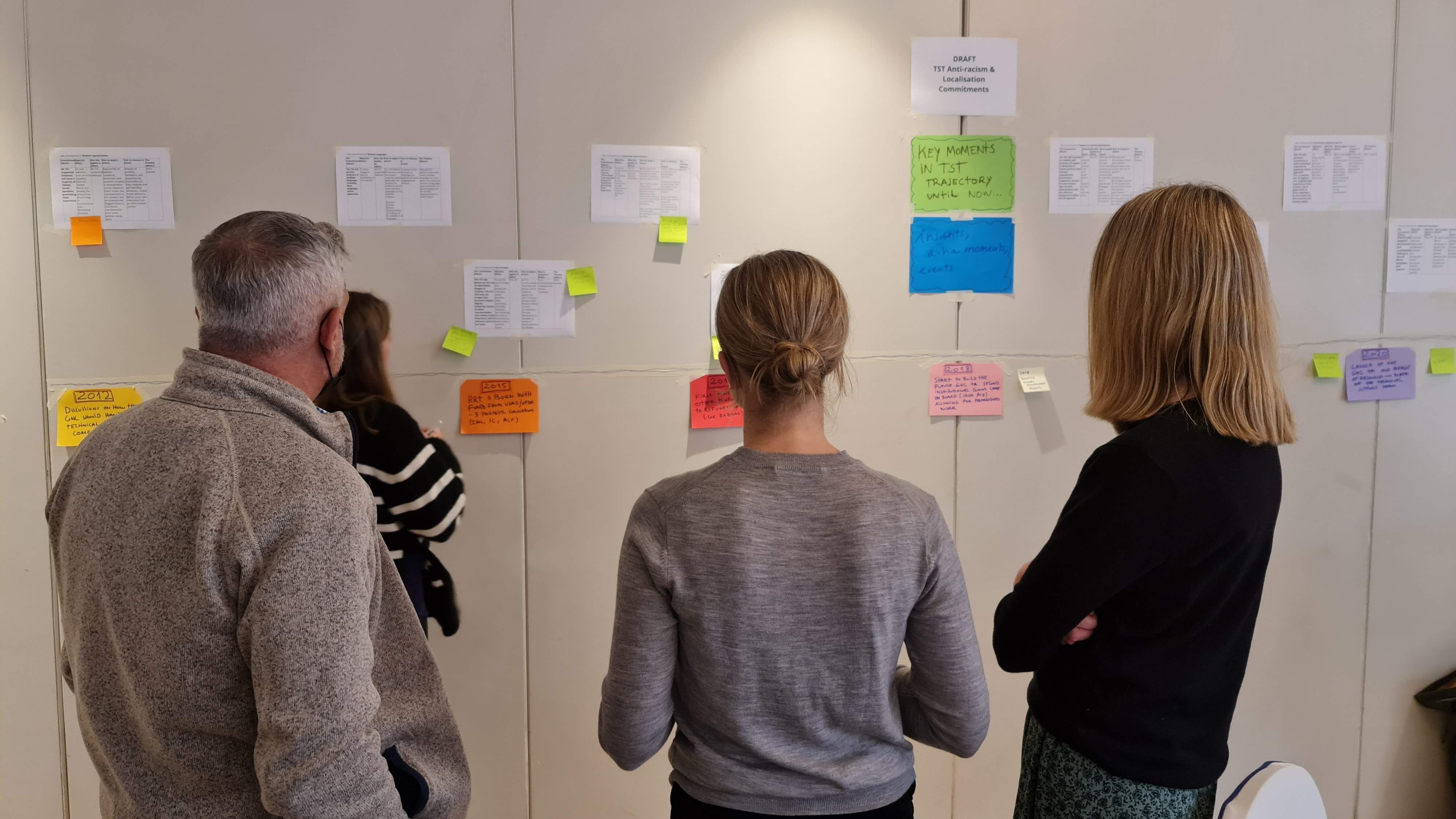
Our platform provides technical assistance to nutrition actors in emergencies since 2020
We’re excited to announce that we’ve received 1,000 requests for technical nutrition support in emergencies via our support platform, since the formation of the Technical Alliance in 2020.
And 145 of them are still ongoing!
These requests come from 88 different countries across 9 regions of the word – with over half of them in Africa. And the vast majority are issued by Cluster/Sector organisations, UN agencies and International NGOs (around 85%); others come, for instance, from Local and National Actors and individual practitioners (roughly 10%).
The support requests cover a comprehensive range of technical areas: Cluster Coordination, Nutrition Information Systems, IYCF-E, Information Management, Wasting, etc. And the assistance provided spans from remote consultancies to country deployments, including consensus-driven guidance, resources and learning opportunities.
Ethiopia: our first deployment focused on Gender and Nutrition in Emergencies
In March 2023, our IYCF-E and Gender Advisor, Brooke Bauer, travelled to Ethiopia for our first deployment focused – specifically – on Gender and Nutrition. It was a 6-week joint mission between the Alliance, UNICEF, and WFP.
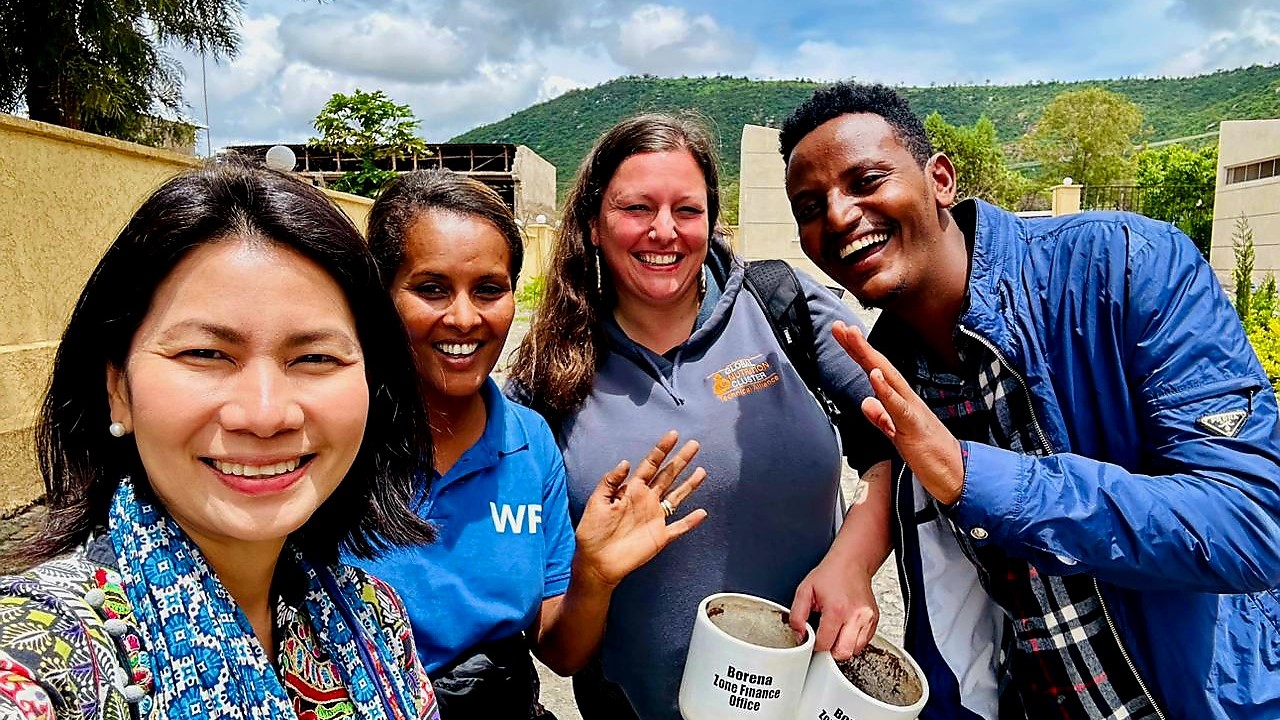
"Undernutrition of women and girls, including pregnant and breastfeeding women, is an intersectional issue. It affects and is affected by factors across the board: health, food security, gender-based violence, LGTBQAI+ rights, shelter, camp management... all of it. And rates of undernutrition among pregnant and breastfeeding women in parts of Ethiopia reaches as high as 46%. This leads to intergenerational malnutrition.
Partners across all sectors including donors, government and advocates here in Ethiopia have all stepped forward to work together to support the communities and change this."
– Brooke Bauer
This mission allowed for the team to discuss needs from the community with local women and Health Extension Workers. These conversations led to a wider discussion at national level on accountability to affected people within the nutrition response.
“Accountability, a core humanitarian standard, is an active commitment by humanitarian actors to use power responsibly by taking account of, giving account to, and being held to account by the people they seek to assist.”
– Brooke Bauer
>> Watch the recording of the webinar: Gender and Nutrition in Emergencies: Ethiopia Case
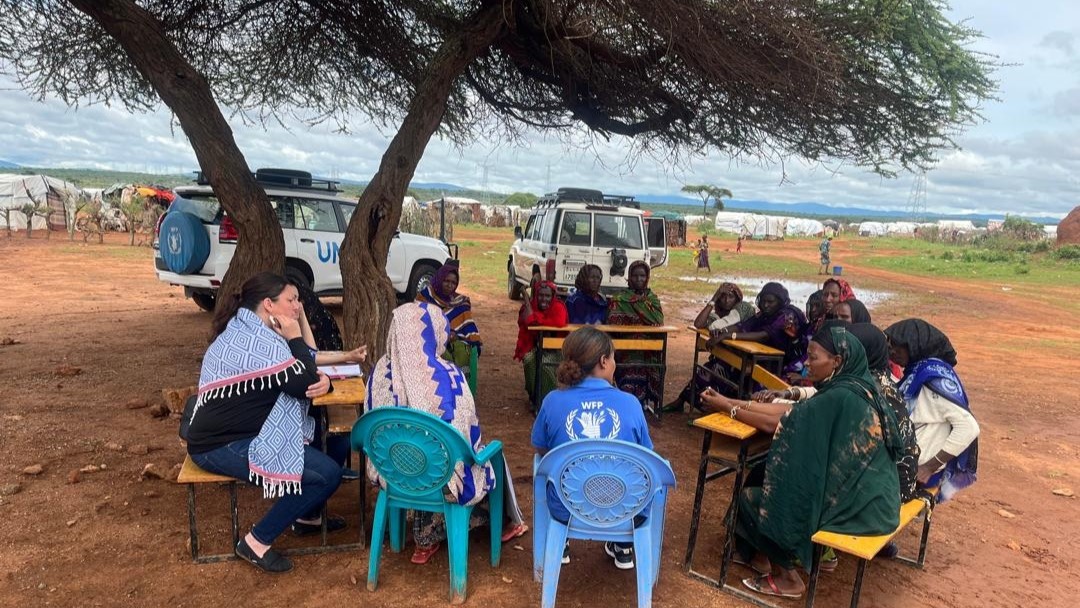
Somalia: how training local practitioners achieves greater localisation
In May 2023, our CMAM Advisor, Martha Nakakande, travelled to Galkacyo (Somalia) to deliver a ToT on In-patient Management of Severe Acute Malnutrition to actors involved in the preparedness and coordination of the nutrition response to emergencies.
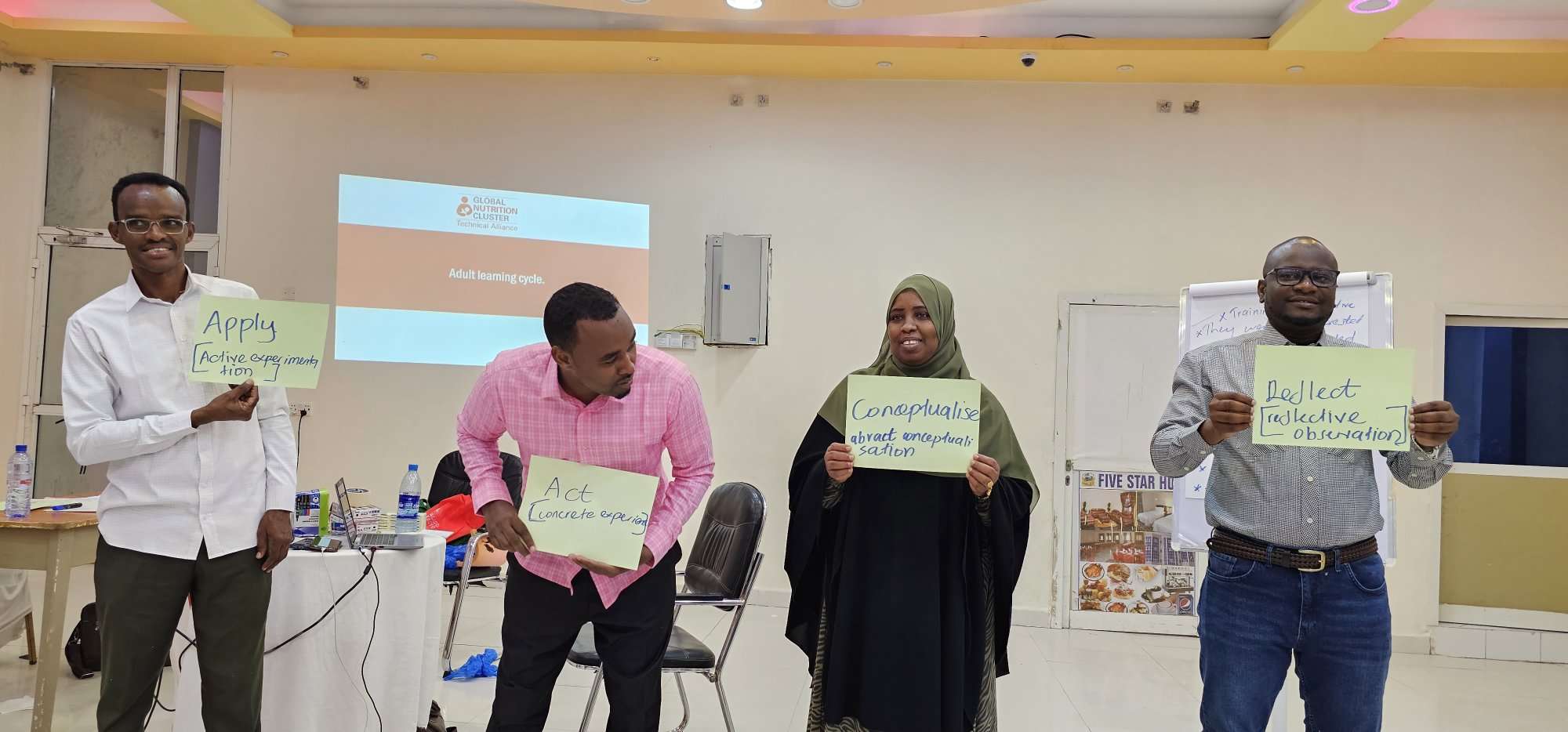
“ToTs are one of the best ways in which Local and National Actors (LNAs) are able to get extensive knowledge within their fields, especially when time and funding are limited. That is because ToTs create a pool of subject-matter individuals who continue to support and ensure better working of the LNAs.
The newly trained professionals can ensure greater capacity, strengthening their organisations by cascading the knowledge to all the staff. Even if many LNAs are affected by staff turnover, the knowledge remains in the community.”
– Martha Nakakande
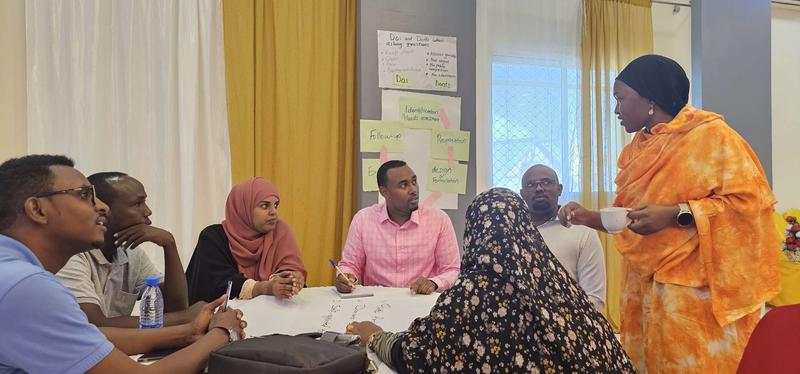
By October, five months after Martha’s training in Galkacyo, ToT participant and Sub-Cluster Nutrition Manager in Somalia, Aden Mohamed Ali, explains what has been the impact of the training on the ground:
“I have seen the positive impact of the training in Hirshabelle State stabilisation centres. The training has improved the knowledge and skills of the staff on how to conduct effective and participatory training sessions, how to coach and mentor health workers, and how to monitor and evaluate the quality of the training.
The training has also contributed to the improvement of the overall performance of these stabilisation centres, such as reducing the mortality rate, increasing the cure rate, and decreasing the default rate.
As a trainer and a nutritionist, I believe it has made a difference in the lives of the children who suffer from severe acute malnutrition.”
– Aden Mohamed Ali
>> Read about our work facilitating partnerships to strengthen nutrition programming in Somalia
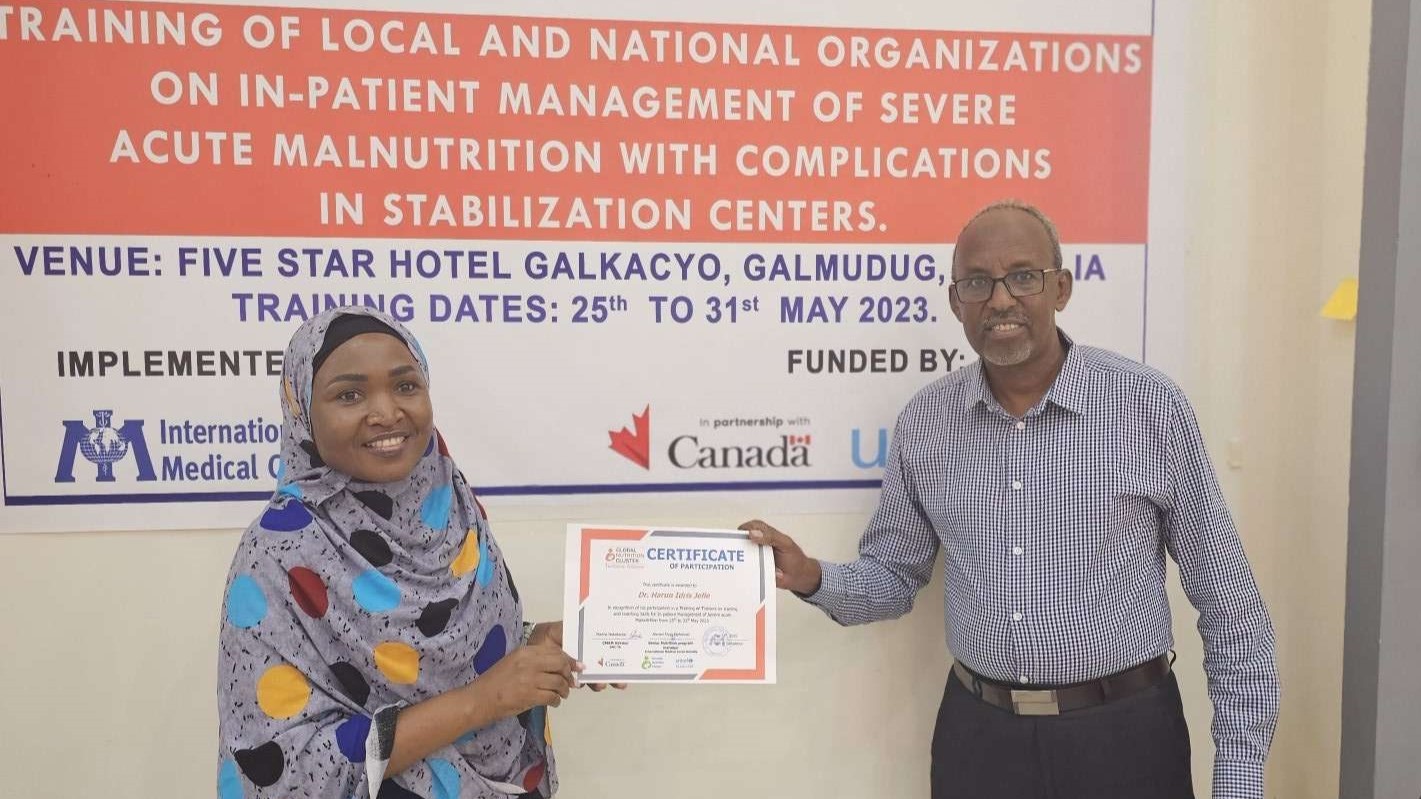
What’s next for the Alliance in 2024?
Co-led by UNICEF and Save the Children International, the Alliance’s mission has always been to deliver top-quality technical support to all nutrition actors working in humanitarian emergencies worldwide.
However, to communicate our support and services more clearly and improve your experience with us, we’ve decided to bring Global Nutrition Cluster’s two arms of support – coordination/information management and technical support – under one unified, global brand moving forward to create one holistic support platform.
"We are excited by the progress within the GNC Technical Alliance to make technical support for Nutrition in Emergencies increasingly accessible to countries and practitioners at all levels.
We are confident that a unified support platform for all Global Nutrition Cluster services will provide greater clarity to global nutrition actors. And it will help us use our collective resources more efficiently, to better support nutrition actors when preparing for, responding to and recovering from nutrition emergencies within humanitarian crises."
– Andrew Beckingham, Technical Alliance’s Save the Children International co-lead
>> Read about why the Alliance is changing in 2024, and watch the recording of “What’s Next for the Alliance?” webinar, to learn more about this exciting change and how it impacts you.
